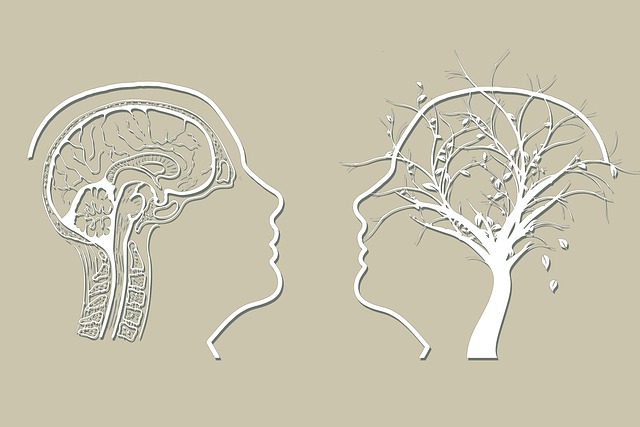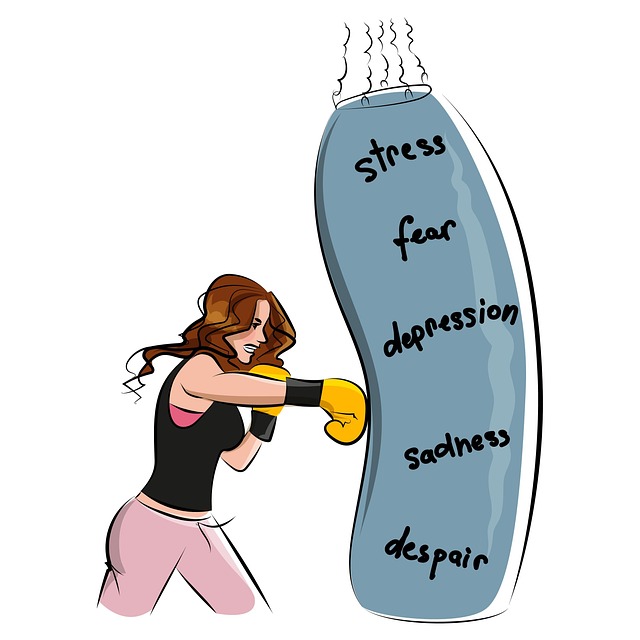This text explores the critical need for specialized therapy for adolescent teens facing terminal illnesses, focusing on both physical and emotional well-being. It highlights the effectiveness of community outreach programs in early intervention, coaching as a transformative tool empowering teens to develop coping mechanisms, and the integration of therapeutic techniques like mindfulness meditation. The optimal approach combines tailored therapy aligned with adolescents' developmental stage, systemic advocacy, and Mental Health Policy Analysis, offering stress relief and enhanced access to resources for both teens and families. Evaluating these programs requires comprehensive qualitative and quantitative data analysis, including pre-post assessments, tracking mindfulness practice, measuring mental health symptom changes, and assessing emotional intelligence development.
“Uncovering innovative solutions for mental wellness among adolescents facing terminal illnesses, this article explores the transformative power of coaching programs. We delve into the unique challenges these teens encounter, highlighting the critical role coaches play in their journey. By integrating therapeutic techniques, we discuss how tailored wellness programs can foster resilience and emotional well-being.
Through a structured approach, we guide readers on creating effective interventions, measuring success, and ultimately enhancing the lives of adolescent teens grappling with terminal conditions.”
- Understanding Adolescent Mental Health and Terminal Illnesses
- The Role of Coaching in Supporting Teens with Chronic Conditions
- Creating a Comprehensive Wellness Program for This Specific Demographic
- Integrating Therapeutic Techniques into Coaching Sessions
- Measuring Success: Evaluation Methods for Teen Mental Wellness Programs
Understanding Adolescent Mental Health and Terminal Illnesses

Adolescent mental health is a critical aspect that often requires specialized care, especially when navigating challenging situations such as terminal illnesses. Teenagers and young adults experiencing these conditions face unique psychological challenges that demand tailored support. Therapy for adolescent teens with terminal illnesses involves addressing not only the physical aspects of their condition but also their emotional well-being, which can be severely impacted by the stress and anxiety associated with a serious diagnosis.
Community outreach programs focused on mental wellness can play a pivotal role in providing early intervention and support systems. By implementing these initiatives, healthcare providers can reach out to adolescents and offer guidance, education, and coping mechanisms for managing anxiety relief and preventing burnout. This proactive approach is essential, considering the growing rates of mental health disorders among young people, especially when dealing with life-altering events like terminal illnesses. Such programs contribute to fostering resilience and promoting healthy coping strategies within the community.
The Role of Coaching in Supporting Teens with Chronic Conditions

Coaching plays a vital role in supporting teens with chronic conditions, offering a unique approach to their mental wellness journey. Unlike traditional therapy, coaching focuses on empowering adolescents to develop coping strategies and build resilience. By facilitating open communication, coaches help teens navigate the challenges associated with terminal illness, fostering self-awareness and emotional regulation. This supportive environment encourages them to express their feelings, set personal goals, and make informed decisions regarding their care.
Through tailored sessions, coaches teach valuable skills in mood management and stress reduction, enabling teens to actively participate in their treatment plans. The coaching relationship provides a safe space for teens to explore their fears, hopes, and concerns related to their illness, thereby enhancing their overall well-being. Moreover, integrating community outreach program implementations and stress management workshops within these coaching sessions can further benefit adolescents, offering peer support and additional resources crucial for navigating the complexities of chronic conditions.
Creating a Comprehensive Wellness Program for This Specific Demographic

Developing a comprehensive wellness program for adolescent teens facing terminal illness requires a nuanced approach that addresses both their unique psychological needs and the challenges inherent in their circumstances. This involves integrating specialized therapy tailored to their developmental stage, focusing on coping skills development to help them navigate stress and anxiety relief associated with their diagnosis. Beyond individual support, programs should include components of Mental Health Policy Analysis and Advocacy to ensure systemic changes that better support terminally ill youth and their families. By fostering a sense of empowerment and providing access to resources, these initiatives can significantly enhance the overall mental wellness of this vulnerable demographic.
Integrating Therapeutic Techniques into Coaching Sessions

Integrating therapeutic techniques into coaching sessions for adolescent teens facing terminal illness is a nuanced and powerful approach. Techniques such as mindfulness meditation can provide a sense of calm and grounding, helping young individuals cope with anxiety and stress. By incorporating these practices, coaches create a safe space for teens to process their emotions, gain insights, and build resilience.
Cultural sensitivity in mental healthcare practice is paramount when tailoring support for terminally ill adolescents. Coaches must be adept at recognizing and respecting individual cultural beliefs and values, ensuring that therapeutic interventions align with the client’s framework. This approach not only enhances the effectiveness of coaching but also fosters trust and a deeper connection between coach and teen. Additionally, coping skills development becomes more meaningful when tailored to each teen’s unique needs and context.
Measuring Success: Evaluation Methods for Teen Mental Wellness Programs

Evaluating the success of mental wellness coaching programs for teen is a multifaceted process that goes beyond simple attendance or satisfaction surveys. When designing assessment strategies, it’s crucial to consider both qualitative and quantitative data to capture the program’s true impact on adolescents’ lives. This can include pre-and post-program assessments, where participants are evaluated on measures like mood, anxiety levels, coping mechanisms, and emotional regulation skills using validated tools such as standardized questionnaires and interviews.
Incorporating methods like Mindfulness Meditation practice into the evaluation allows for exploring improvements in stress reduction and mindfulness – key aspects of teen mental wellness. Additionally, tracking changes in self-reported symptoms related to specific mental health conditions, even those not initially targeted by the program, can shed light on potential broader effects. Mental illness stigma reduction efforts within the program itself can also be assessed through participant feedback, demonstrating shifts in attitudes and beliefs towards seeking help for emotional challenges. Emotional Intelligence, a vital component of overall well-being, may be evaluated through tasks measuring empathy, social awareness, and self-regulation skills, providing valuable insights into the program’s contribution to adolescents’ ability to navigate complex interpersonal relationships and manage their emotions effectively.
Mental wellness coaching programs tailored for adolescent teens facing terminal illnesses have the potential to revolutionize their care and support. By integrating therapeutic techniques, these programs offer a unique approach to enhance mental resilience and overall well-being during an incredibly challenging time. As highlighted in this article, understanding the specific needs of this demographic is crucial, from recognizing the impact of chronic conditions to measuring the success of interventions. With the right strategies and evaluation methods, coaching can play a vital role in fostering mental fortitude, providing a supportive ecosystem that complements traditional medical care for adolescent teens facing terminal diagnoses.












